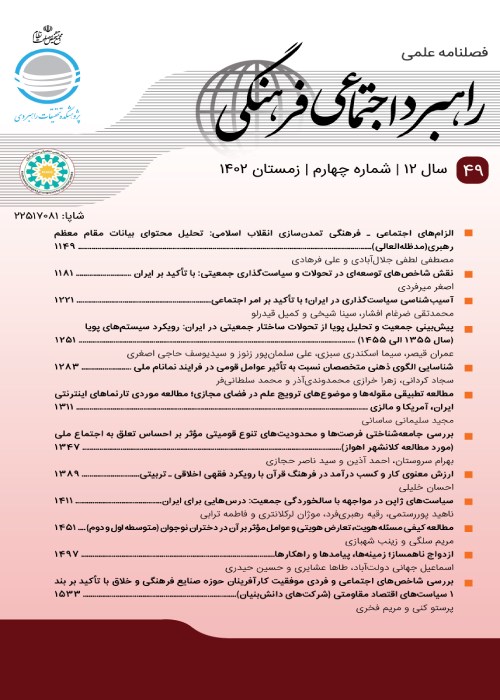Confrontation between Rationality and Superstition in the Process of Development: with an Emphasis on Iran in the Qajar Era
ط
One of the causes of the under-development of Iran during Qajar period was the conflict between rationality and superstition in the Iranian society. In fact, the superstition was so ingrained in the political and social life of Iran that the collective culture and political decisions of that era had been affected to the point that under the Qajar Kings, especially Naser ad-Din Shah, Muzaffar-ad Din Shah and Mohammad Ali Shah, they had resorted to all kinds of superstitions for solving the problems instead of taking into consideration the wisdom, thought and science. This article discusses the impact of the superstition as an irrational phenomenon on the under-development of Iran during the aforementioned period with a qualitative and causal methodology as well as descriptive and analytical method and through collecting the library data in order to answer to the question that "what was the role of superstitious culture on the political under-development of Iran during the Qajar period?"
The authors test the hypothesis that through superstitious culture which opposed rationality but coexisted with it in the Qajar period, led to the "intellectual despotism" and thereby the "political tyranny". The discourse status resulted from this intellectual and practical confrontation led to the reproduction of a cycle containing superstitious culture and political tyranny which each of them was producing/reproducing and reinforcing another in this cycle leading to under-development in Qajar era.


